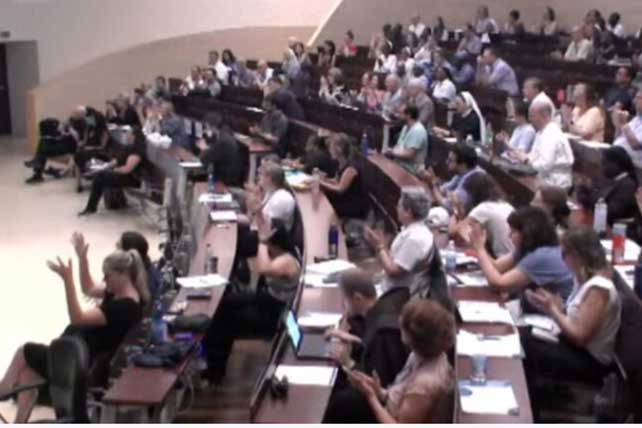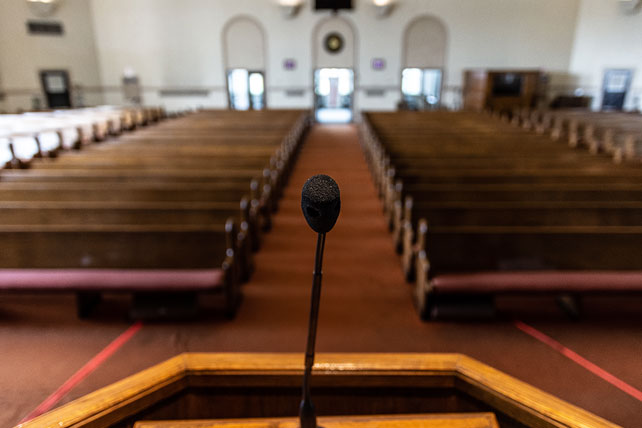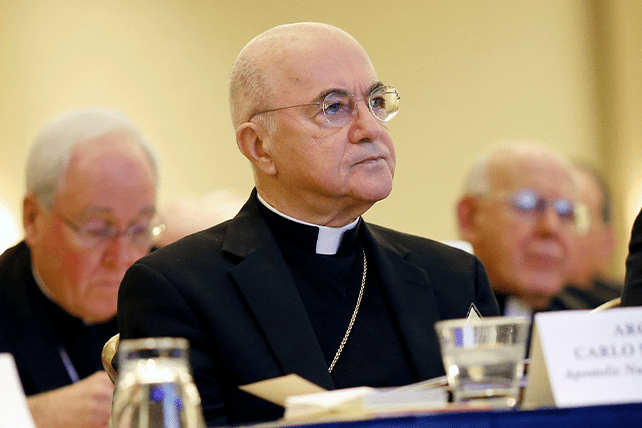VATICAN CITY (RNS) — Safeguarding experts and abuse survivors met at the Gregorian University this week to address clerical abuse of disabled individuals, shedding light on the scope and challenges of this often unaddressed reality.
People living with psychological and physical disabilities are disproportionately more likely to become victims of physical, psychological and sexual abuse. Disabled children are 3.1 times more likely to be sexually abused and 3.9 times more likely to be emotionally abused, according to The Safeguarding Company.
Children with psychological or intellectual disabilities and people who are deaf, blind or autistic are up to 5 times more likely to suffer abuse.
The team of 350 experts in safeguarding and abuse prevention from 55 countries met June 18-21 for the annual International Safeguarding Conference organized by the Institute of Anthropology (or IADC) at the Gregorian University to discuss policies, challenges and risks facing the disabled.
“There is a necessity to really look closely to how people deal with disabled persons especially when in care, how they are helped to realize what abuse is and looks like and feels like and then give them the opportunity to use reporting channels tailored to their needs and capacities,” said Fr. Hans Zollner, the director of the IADC, in an interview with RNS on Friday (June 21).
Within the church, high-profile cases of abuse against disabled people or vulnerable adults have shed light on the lack of protections for the disabled. In 2019 an Argentine court found two priests guilty of sexually abusing 10 disabled individuals at Antonio Provolo Institute for Deaf and Hearing Impaired Children between 2004 and 2016. A 900-page report issued in January delved into the case of the French theologian and activist Jean Vanier, founder of l’Arche, the charitable organization for people living with intellectual disabilities, who abused six non-disabled women between 1970 and 2005.

Fr. Hans Zollner, head of the safeguarding institute at the Pontifical Gregorian University, poses for photos in Rome before an interview with The Associated Press, Oct. 13, 2021. (AP Photo/Alessandra Tarantino)
“It has shone a light on the necessity of really supervising such highly esteemed works of charity,” Zollner said, adding that church authorities should not become complacent just because a charismatic leader seems exemplary. “It should not deter us from being really vigilant of the traps and the likelihood of disabled people being abused,” he added.
Pope Francis convened a summit of abuse-prevention experts and victims at the Vatican in February 2019 to address the clerical abuse crisis and enact a “zero tolerance” policy within the institution. Following the event, the pope issued a decree, Vos Estis Lux Mundi (“You Are the Light of the World” in English), where he ordered sweeping reforms for accountability and mandatory reporting of abuse for priests and religious. In the document he also extended the canon law protections for vulnerable adults.
Zollner praised the Catholic Church’s current effort to enforce accountability and safeguarding in dioceses all over the world today and suggested that the institution may become a leader in some parts of the world in its advocacy for the protection of children and vulnerable adults from abuse.
“When it comes to accountability for coverup and in the area of dealing with the crimes of the past, the church has a lot to do, and, honestly, we are lagging behind,” Zollner admitted.













 The World Health Organization (WHO) has identified a significant “mental healthcare gap” in many regions across the globe, particularly in low- and middle-income countries. This gap refers to the disparity between the number of people needing care for mental health conditions and those who receive treatment. Several factors contribute to this gap, including insufficient funding, a shortage of trained healthcare professionals, stigma associated with
The World Health Organization (WHO) has identified a significant “mental healthcare gap” in many regions across the globe, particularly in low- and middle-income countries. This gap refers to the disparity between the number of people needing care for mental health conditions and those who receive treatment. Several factors contribute to this gap, including insufficient funding, a shortage of trained healthcare professionals, stigma associated with 














